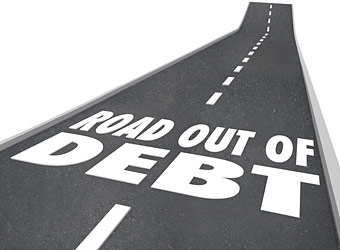 Recent reports have highlighted a concerning trend among Florida residents: a growing struggle to pay off credit card bills. Despite the vibrant economy in St. Petersburg and allure as a popular tourist destination, many individuals and families are grappling with mounting credit card debt, raising alarms about financial stability and economic resilience. This article explores the underlying factors contributing to this issue, its impact on Floridians, and potential solutions to alleviate the burden.
Recent reports have highlighted a concerning trend among Florida residents: a growing struggle to pay off credit card bills. Despite the vibrant economy in St. Petersburg and allure as a popular tourist destination, many individuals and families are grappling with mounting credit card debt, raising alarms about financial stability and economic resilience. This article explores the underlying factors contributing to this issue, its impact on Floridians, and potential solutions to alleviate the burden.
Understanding the Issue
Florida’s residents face several challenges when it comes to managing credit card debt:
- Economic Factors: While Florida boasts a diverse economy with strong sectors such as tourism, construction, and agriculture, economic vulnerabilities persist. Fluctuations in employment, income disparities, and the high cost of living in certain regions contribute to financial instability.
- High Cost of Living: Urban centers and coastal areas in Florida experience a higher cost of living compared to national averages. Housing costs, utilities, and everyday expenses can strain household budgets, leading to reliance on credit cards for essential purchases.
- Consumer Spending Habits: Widespread use of credit cards for discretionary spending, emergencies, and everyday expenses has contributed to significant debt accumulation among residents. High interest rates and minimum payments make it challenging for individuals to pay off their balances in full.
- Natural Disasters: Florida’s susceptibility to hurricanes and natural disasters can lead to unexpected expenses and income disruptions, prompting residents to rely on credit cards for recovery efforts.
Impact on Individuals and Families
The struggle to pay off credit card bills has profound implications for individuals and families across Florida:
- Financial Stress: Mounting credit card debt can cause stress, anxiety, and sleepless nights as individuals juggle multiple payments and worry about their financial future.
- Credit Score Damage: Late payments and high credit card balances can damage credit scores, making it harder for individuals to qualify for future loans, mortgages, or favorable interest rates.
- Legal and Collection Issues: Falling behind on credit card payments can result in collection calls, legal action from creditors, and wage garnishment, further exacerbating financial distress.
Investigating Recent Statistics and Trends
Recent data sheds light on the severity of the credit card debt issue among Florida residents:
- According to the Federal Reserve, the average credit card debt per borrower in Florida is higher than the national average, indicating a widespread issue of debt burden among residents.
- Reports from credit reporting agencies highlight that many Floridians have high credit utilization rates, which can negatively impact credit scores and increase borrowing costs.
- Studies by financial institutions reveal that a significant percentage of residents carry credit card balances from month to month, paying substantial amounts in interest and fees.
Strategies to Address the Crisis
Addressing the struggle to pay off credit card bills requires a multifaceted approach involving both individual actions and broader community and policy initiatives:
- Financial Education: Expand financial literacy programs and resources to educate residents about budgeting, debt management, and responsible credit card use.
- Debt Repayment Strategies: Encourage individuals to create personalized debt repayment plans, prioritize high-interest debts, and explore debt consolidation options to reduce overall debt burden.
- Consumer Protection: Advocate for stronger consumer protection laws that regulate credit card practices, debt collection, and interest rates to safeguard residents from predatory lending practices.
- Support Services: Increase access to free or low-cost financial counseling, debt management programs, and legal aid services to assist individuals in navigating debt repayment challenges.
- Promote Economic Stability: Invest in job creation, affordable housing initiatives, and economic development projects to strengthen household financial stability and reduce reliance on credit cards.
Steps for Individuals to Manage Credit Card Debt
Individuals can take proactive steps to manage and pay off credit card debt effectively:
- Create a Budget: Develop a realistic budget that prioritizes essential expenses and allocates funds towards debt repayment each month.
- Negotiate with Creditors: Contact creditors to negotiate lower interest rates, extended payment plans, or settlement options that fit your financial situation.
- Avoid New Debt: Resist the temptation to accumulate new debt by limiting credit card usage and prioritizing cash or debit card payments for purchases.
- Build an Emergency Fund: Save for unexpected expenses to reduce reliance on credit cards during financial emergencies and unforeseen circumstances.
- Monitor Credit Reports: Regularly review your credit report for accuracy and monitor your credit score to track progress and identify areas for improvement.
The struggle among Florida residents to pay off credit card bills underscores the urgent need for effective solutions to address mounting debt and promote financial well-being. By understanding the factors contributing to this issue, advocating for consumer protections, expanding access to financial education and support services, and taking proactive steps to manage debt, individuals and communities can work towards achieving financial stability and resilience.
Breaking the cycle of credit card debt requires collaboration between individuals, policymakers, and community stakeholders to implement sustainable solutions that empower Floridians to regain control of their finances and build a brighter financial future. Through education, advocacy, and strategic interventions, Florida can mitigate the impact of credit card debt and pave the way for economic prosperity and security for all residents.

